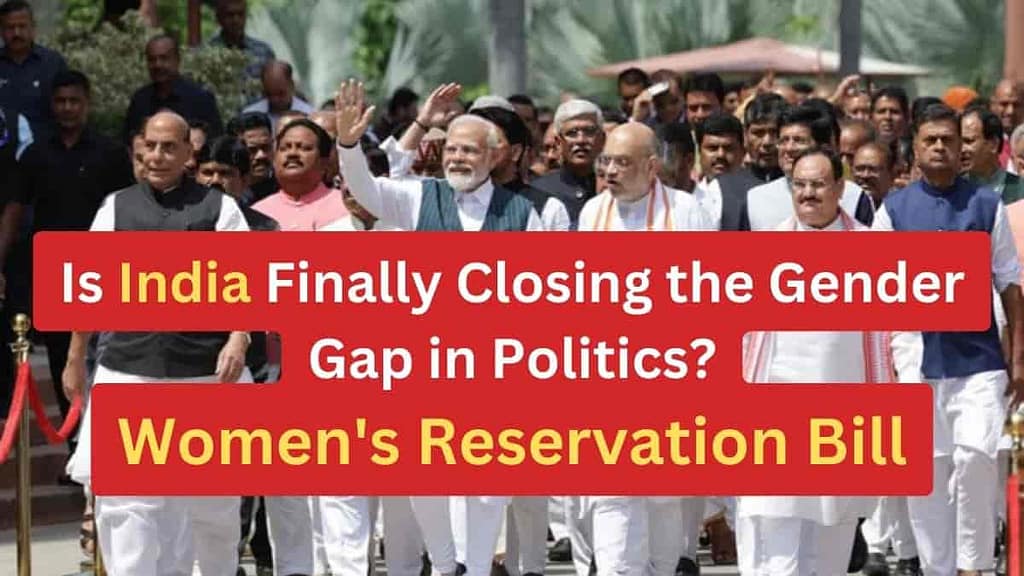In a historic move for gender representation in Indian politics, the country’s parliament passed a groundbreaking bill- ‘Women’s Reservation Bill’ on Thursday, reserving one-third of seats in the lower house and state assemblies for women. This significant development has been celebrated by rights groups and politicians across India’s diverse political spectrum. Prime Minister Narendra Modi’s government introduced the Women’s Reservation Bill during a special parliamentary session on Tuesday, and it received cross-party support, demonstrating a rare unity in India’s often fractious political landscape.

Women’s Reservation Bill
Prime Minister Modi enthusiastically shared his thoughts on Twitter, declaring, “This marks a historic milestone in our nation’s democratic voyage! As the Women’s Reservation Bill is approved, it fortifies the influence of women in governance and heralds the dawn of a new era in their empowerment.”
India Passes Landmark Bill
The journey to pass this bill has been long and challenging. It was first introduced in 1996 and faced six failed attempts due to strong disapproval from the predominantly male lawmakers in the country. In India, which boasts a population of 1.4 billion, women constitute nearly half of the 950 million registered voters. However, their representation in parliament stands at only 15%, with state assemblies faring even worse at just 10%.
While the bill has been approved, it will not be applicable to the upcoming general elections next year. The implementation of the quota could take years, contingent on the redrawing of electoral constituencies, a process that will commence only after the completion of India’s once-in-a-decade census. The census, originally slated for 2021, was delayed due to the COVID-19 pandemic and has since remained in limbo.
This delay has left some members of India’s opposition disappointed, as they had hoped for more immediate change. Sonia Gandhi, a leader of the Indian National Congress, noted that women have been waiting for 13 years for this bill to pass and questioned how many more years they would need to wait.
Parliamentary Seats for Women
Despite the noteworthy advancement achieved through the bill’s approval extending Parliamentary seats for women, the quest for gender parity in Indian politics persists as an enduring challenge. India’s political history reflects this, with just one female prime minister, Indira Gandhi, who served two terms before her tragic assassination in 1984. Furthermore, Draupadi Murmu, the current President, is only the second woman to occupy this esteemed role since India’s independence in 1947.
Globally, women’s representation in lower house parliamentary seats stands at around 26%, according to UN Women’s data. While progress has been made in recent years, India’s move to reserve one-third of parliamentary seats for women is a remarkable step toward gender parity in politics, setting an example for the world.
As India continues on its path to achieving greater gender equality, this momentous decision will shape the future of Indian politics, empowering women to take on more active roles and contribute significantly to the nation’s governance.
You May Also Like
Who is Rupert Murdoch: Unraveling the Media Mogul’s Legacy and Resignation
India Suspends Canadian Visas Amid Escalating Diplomatic Standoff: What Led to This Friction?
Biden announces aid for Ukraine: $325M military aid package after Zelensky visits White House
Breaking News: Rupert Murdoch Resigns: What It Means for News
Russia Strikes Ukrainian Cities: Recent Attacks, Zelensky-Biden Meeting, and Ongoing Conflict